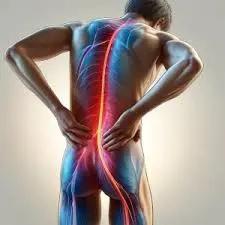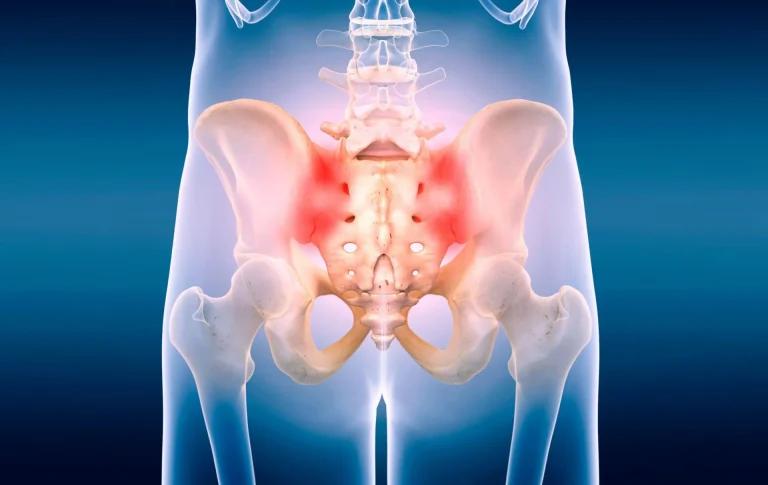
Sciatic nerve pain can be a painful condition that affects the quality of life for many individuals. While traditional treatments have their place, there is growing interest in the role that vitamins, can play in alleviating this type of nerve pain. Finding the best vitamin for sciatic nerve pain is not only about managing the symptoms, but also about understanding the underlying health benefits vitamins can provide to support nerve health and overall well-being. The article looks at the significance of vitamins in maintaining nerve health, with a focus on those nutrients proven to offer relief from sciatic nerve pain.
Understanding sciatic nerve pain
Overview of sciatica
Sciatica is characterised by pain that originates in the lower back and travels down the sciatic nerve, which extends from the buttocks down each leg. The sciatic nerve is the longest and thickest in the body, formed by a bundle of five nerve roots from the spinal cord. Each sciatic nerve runs through the hip and buttock, continuing down the leg, and is responsible for controlling several muscles in the lower limbs and providing feeling to the legs and feet.
Common causes and symptoms
The primary cause of sciatica is the compression or irritation of the sciatic nerve or its roots. Commonly, this compression is due to a herniated disc or bone overgrowth in the spine, such as bone spurs. Other conditions that can lead to sciatica include spinal stenosis, piriformis syndrome, pelvic injuries, tumours, and even pregnancy.
Symptoms of sciatica vary, but include pain that can range from a mild ache to a severe burning sensation or even an electric shock-like feeling. The pain usually affects only one side of the body, but can worsen with activities such as sneezing, coughing, or prolonged sitting. Other symptoms may include numbness, tingling sensations, or muscle weakness in the affected leg and foot. In severe cases, it can lead to neurological symptoms like urinary or fecal incontinence, indicating a need for immediate medical intervention.
Role of vitamins in nerve health
Importance of vitamins
Vitamins in the B group, play a pivotal role in maintaining nerve health. B vitamins such as:
- Thiamine (B1) acts as a site-directed antioxidant, protecting nerves from environmental stresses
- Pyridoxine (B6) assists in balancing nerve metabolism and neurotransmitter synthesis, crucial for effective nerve communication
- Cobalamin (B12) is vital for nerve cell survival and the regeneration of myelin sheaths, which are necessary for proper nerve function
How vitamins aid nerve function
The B vitamins are essential in preventing and addressing nerve damage. They support nerve regeneration by promoting the development of new cellular structures and enhancing myelin formation, which plays a role in nerve signal transmission. Studies have shown that vitamin B12 aids in the recovery of nerve fibres after injury by increasing myelin thickness and nerve fibre density. This is complemented by its role in the methionine cycle, crucial for protein synthesis and reducing oxidative stress. Collectively, vitamins B1, B6, and B12 enhance neuropathic pain management, and their deficiency is linked to various neurological disorders.
Specific vitamins for sciatic nerve pain
Vitamins play a crucial role in maintaining nerve health, reducing inflammation, and promoting overall well-being, which is essential for managing conditions like sciatic nerve pain. Here, we explore specific vitamins that are particularly effective.
Vitamin B12
Vitamin B12 is vital for the proper functioning and recovery of nerves. It aids in the regeneration of myelin sheaths, which protect nerve fibres and enhances the transmission of electrical signals through the nerves. This process is crucial for reducing pain and speeding up recovery from sciatic nerve damage. The recommended daily dose of Vitamin B12 varies, but individuals suffering from nerve pain might benefit from supplements to ensure optimal nerve health.
Vitamin D
Vitamin D has significant anti-inflammatory and pain relief properties that can help relieve sciatic nerve pain. It regulates calcium and phosphorus levels in the body, which are essential for nerve and muscle function. Vitamin D deficiency is common in individuals with chronic pain, particularly those in colder climates or with limited sun exposure. Supplementation of 600 to 800 IU daily is generally recommended, although some individuals may require higher doses as directed by a healthcare professional.
Vitamin B6
Vitamin B6 helps in the production of neurotransmitters and the working of nerve tissues, therefore playing a role in reducing pain and inflammation associated with sciatica. Like Vitamin B12, Vitamin B6 is often taken in supplement form to ensure adequate levels are maintained to support nerve health.
In addition to these vitamins, incorporating antioxidants and other anti-inflammatory foods can further help in managing sciatica symptoms. Foods rich in Vitamin C, such as citrus fruits and leafy greens, can also support collagen production and tissue repair around the sciatic nerve.
Sources of Vitamin B12
Individuals can increase their vitamin B12 intake through dietary sources such as meat, dairy products, and fortified cereals, or supplements. Supplements provide a direct and potent source of vitamin B12, especially for those at risk of deficiency, including the elderly and diabetic individuals treated with metformin, which can block B12 absorption.
Research and evidence
Studies indicate that vitamin B12 plays a vital role in the regeneration of nerves and the synthesis of myelin sheath, crucial for nerve function and impulse conduction. Studies in animals have shown that vitamin B12 promotes myelin formation and aids in the recovery of nerves post-injury by increasing myelin thickness and nerve fibre density. Additionally, vitamin B12 plays a vital role in the methionine cycle, crucial for protein synthesis and reducing oxidative stress, which further supports nerve repair and health.
Incorporating vitamin B12 into your diet is highly beneficial for those concerned with nerve health or experiencing sciatica pain, ensuring that the nervous system remains robust and functional.
Importance of Vitamin D
Research indicates that Vitamin D deficiency is commonly observed in individuals experiencing chronic pain conditions, such as sciatica, particularly those living in colder climates or with limited sun exposure. This deficiency can make symptoms of nerve pain worse and contribute to the overall severity of the condition. Clinical trials have demonstrated that supplementation with Vitamin D can significantly reduce pain scores in various painful conditions, including neuropathic and chronic back pain.
Sources and supplementation
The primary sources of Vitamin D are sunlight, fortified foods, and dietary supplements. For adults, the recommended daily intake is between 600 to 800 IU. Studies have shown that Vitamin D3, the biologically active form of Vitamin D, is particularly effective in reducing inflammation and improving nerve function in affected areas, thus easing discomfort associated with sciatic pain. Regular supplementation, as advised by healthcare providers, can help maintain optimal levels of Vitamin D, ensuring effective management of sciatica symptoms and overall nerve health.
Other nutrients and lifestyle changes
Additional supplements
Supplements can play a vital role in managing sciatica by providing essential micronutrients that might not be obtained through diet alone. Key supplements include Magnesium, Vitamin D, Vitamin E, Vitamin B12, Vitamin B6, Zinc, Selenium, and Fish oil (Omega-3 fatty acids). These nutrients are crucial as they help suppress inflammation. Antioxidants such as Vitamin E, Zinc, and selenium are particularly beneficial in combating oxidative stress within the body. A natural alternative, is the food additive turmeric, which contains curcumin and is known for its anti-inflammatory properties.
Conclusion
Here, we have looked at the pivotal role of certain vitamins, particularly B12, D, and B6, in addressing and alleviating sciatic nerve pain. It’s clear that integrating these vitamins into your diet or supplement regimen offers hope if you are suffering with sciatic nerve pain.
Sources
- Anatomy, Sciatic Nerve – StatPearls – NCBI Bookshelf
- Magnesium supplement promotes sciatic nerve regeneration and down-regulates inflammatory response – PubMed
- Sciatica: What It Is, Causes, Symptoms, Treatment & Pain Relief
Medical Disclaimer
NowPatient has taken all reasonable steps to ensure that all material is factually accurate, complete, and current. However, the knowledge and experience of a qualified healthcare professional should always be sought after instead of using the information on this page. Before taking any drug, you should always speak to your doctor or another qualified healthcare provider.
The information provided here about medications is subject to change and is not meant to include all uses, precautions, warnings, directions, drug interactions, allergic reactions, or negative effects. The absence of warnings or other information for a particular medication does not imply that the medication or medication combination is appropriate for all patients or for all possible purposes.









